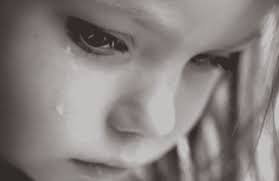…‘If they are old enough to love, they are old enough to feel the pain of grief’…
In most households, when a person dies, while trying to console mourning adults people typically do not inquire from the children around about their emotions and what they feel about the situation. It is generally assumed especially for younger children that they do not fully grasp the significance of death.
Children experience powerful and difficult feelings when death occurs and they need a lot of help to understand what these feelings mean to be able to cope. They are concerned about the adults around them and will typically use them as a mirror to help them deal with their own grief or show bereavement reactions that might seem strange for example, bed-wetting, school problems and so on. They worry about the health and survival of their parents and caregivers and require assurance and support.
Talking to a child about death is particularly difficult, especially when you are dealing with your own grief. It is helpful to know however that children ask themselves similar questions as adults do. Why is life unfair? What happens to the family now? Who takes care of me now? Do not assume what a child knows or does not know based on their age. Instead they should be encouraged to talk about their thoughts and feelings which would provide a much-needed insight into what they know and what they still need to learn. There is no age limit to grieving and the most basic concept a child needs to understand to come to terms with what has happened is the finality of death.

In cartoons and comic books, children see characters die often and then come back to life. They may therefore see death as a temporary separation, and adults may reinforce this belief when they say that the person who has died has just gone far away, or on an exceptionally long journey. With this ‘assurance’ they have little reason to mourn, the downside to this though, is that they keep wondering why mum or dad never showed up on their birthday, why their sibling never shows up at playtime anymore. They may begin to feel angry or frustrated and the adults around often misunderstand their expressions, leaving them even more confused.
The most important step after the loss of a loved one is therefore helping the child(ren) understand the concept of death. Meeting them at their level of understanding and helping them to accept that it is permanent. This way they know not to expect mum or dad back to avoid disappointments and unmet expectations.

Younger children view all things as living: their toys, their favourite spoon, siblings, parents, etc. So, for a child who understands and can correctly identify what living functions are, they can also understand that when those things stop it means the person can no longer laugh, cry, feel pain, or take them out. Also, as they grow children move from believing that everything is alive to believing that they and others close to them will never die. Then when there is a loss, if it is of an older person, in addition to the grief they may begin to believe that older people always die first. If the loss is of a friend in the same age-group or younger, they may begin to believe that they themselves may die soon.
The wish to shield them from death and its harsh realities is therefore understandable but somewhat unrealistic. When a death directly affects a child, the realities should no longer be hidden from them because doing so will feed their fears and wrong assumptions. A child who threw tantrums in the car shortly before a road traffic accident may wrongly assume the accident would not have happened if they had been well behaved. The guilt of words unsaid, things undone plagues the young just as it does the old.

Hence, it is important to help them understand that it is not their fault. Nothing they did or did not do, nothing they said or did not say, not even their thoughts can be blamed for the occurrence. Whether they communicate it or not, it is important to be available to answer their questions and dispel their fears. Reluctance to talk is sometimes because of fear of their guilt and shame being exposed so parents, guardians and caregivers need a lot of patience to properly handle situations like this.
In summary, children should be allowed to understand why their loved one died. The goal is to help them understand what has happened in brief, easy to understand details. Allow them time to understand what has happened, take cues from them, and allow them to ask further questions. Graphic details should be avoided especially if the death was violent.

Dr Omowunmi H. Thanni is a physician with a medical degree from Olabisi Onabanjo University Ago-Iwoye (Mb.ChB. Ogun). She is an Infant and Childhood Mental Health enthusiast who is passionate about supporting children with mental health concerns.
She is also an Early Childcare practitioner with experience observing children dealing with grief, the various psychosocial presentations, and the impact on their families. She is also a Child and Family Volunteer who serves as a healthy support system for children and families who have experienced the loss of one or both parents to terminal illnesses.
She is devoted to debunking cultural myths surrounding childhood mental health and enlightening the community on proper prevention and intervention strategies.

